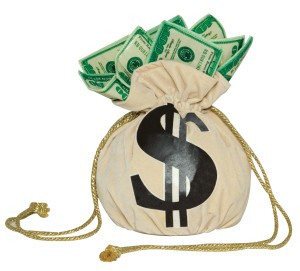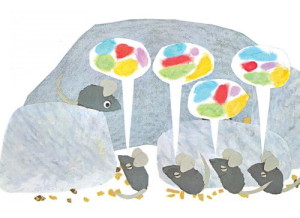Why do YOU write?
I do a lot of thinking. Probably more than is really necessary.
Having written my share of songs, and having heard some amazing writing by other songwriters, I’m always trying to be open to ideas and perspectives that I might not have had on first glance.
I’m like a human idea squirrel, seeing things, hearing phrases, having little epiphanies that I tuck away for later use.
And while those things are in there, they’re stewing, some might say composting, waiting to be reborn as new ideas, in new ways.
I think a lot about why I write. Is it all a big vanity project? Am I capable of having a new, independent thought? Is anyone? Does anyone really care about this? Will what I write make a dent in the social consciousness? Will I actually be able to touch someone’s life?
Would my efforts be better spent rolling up my sleeves and serving lunch at a soup kitchen? I think a lot about that one.
I am reminded of a great book I used to read to my kids, called “Frederick,” by Leo Lionni. The story is about a family of mice preparing for the winter.
All are hard at work gathering and storing food, except for Frederick, who sits very still. He is disdained by the others, who ask him why he doesn’t work.
He protests, and says things like “I gather sun rays for the cold dark winter days,” “I gather colors, for winter is gray,” and “ I gather words, for winter is long, and we’ll run out of things to say.”
And, sure enough, the long, cold winter takes its toll, all of the food eventually eaten, the mice dispirited. They turn to Frederick:
“ ‘Close your eyes,’ said Frederick, as he climbed on a big stone. ‘Now I send you the rays of the sun. Do you feel how their golden glow…’ And as Frederick spoke of the sun the four little mice began to feel warmer. Was it Frederick’s voice? Was it magic? … And when he told them of the blue periwinkles, the red poppies in the yellow wheat, and the green leaves of the berry bush, they saw the colors as clearly as if they had been painted in their minds.”
It is easy to see how Frederick’s supplies are equal to those of the other mice, how his words sustain them just as surely and fully as the food they had eaten.
I like to think that our songs are food for sustenance of the soul, drink for the parched spirit, rest for the weary mind.
I tell my songwriting students, and myself, that songs are like snowflakes – no one is exactly the same as any other (sorry, George Harrison; you might have proved an exception). No one else brings to writing the sum total of our experiences, viewpoint, choice of words or images.
My fondest hope is that one of my songs, drifting in the universe, will to someone, feel like the warm rays of the sun, or conjure up the beautiful colors of the springtime. I hope that one day, I will be Frederick.
Originally posted April 24, 2014 on GuitarWorld.com Acoustic Nation channel.
 Never has it been easier for songwriters to get their music heard. But never has it been harder to get paid for it. As more music streaming services flood our lives with songs, songwriters find that their revenue stream from the music stream goes from small to miniscule. Have you seen the pie chart that represents how many sales of various kinds it takes a songwriter to earn minimum wage? You can check it out here. Long gone are the days when music mattered enough to attract patrons who supported musicians while they enriched our culture.Basically, it says that it takes over 4 million plays a month on Spotify for a musician to earn a living at mini mum wage. Four million. I don’t have that kind of airplay. Do you? Now, even long standing folk venues are closing down, and musicians are increasingly being offered nonpaying gigs for “exposure .” But, as a friend of mine pointed out, people die of exposure. Songwriting as a profession teeters dangerously on the precipice of becoming songwriting as a hobby. An outdated revenue stream It is no surprise, then, that royalty streams are of ever greater importance to the performing songwriter. Until recently, performers and composers have earned royalty income through two separate mechanisms: the right to publicly perform their works and the right to make reproductions of their works and distribute those reproductions. The section of the United States Copyright act that regulates how much writers and performers are paid was drafted in 1909, and dictated the rate of 2 cents per song per use. And in the more than100 years since then, the rate has risen to only 9.1 cents per song. The minimal increase is due to the current law that directs the Copyright royalty board (the body responsible for setting the standard rate) to apply a rate that does not reflect the true market value of the work. The current Section 114(i) of o that songwriters, composers and publishers receive fair compensation for the use of their intellectual property. the Copyright Act limits the evidence the federal rate court is allowed to consider when determining songwriter compensation, and forbids the courts from even considering sound recording royalty rates as a relevant benchmark when setting performance royalties rates for songwriters and composers. The result is an untenable situation where the performances of sound recordings are valued at 12 times those of the musical compositions that underlie them; songwriters and composers receive substantially less for a performance, or “stream” of a song than for the sound recording of the same song. New legislation But Legislation introduced last month by Rep. Doug Collins (R-GA) and Rep. Hakeem Jeffries (D-NY), members of the House Committee on the Judiciary, hope to address this inequity by updating those two key provisions in the Copyright Act s The Songwriter Equity Act (SEA), H.R. 4079, will allow a “rate court” to consider other royalty rates as evidence when establishing digital performance rates for songwriters and composers, and it would adopt a fair, free market rate standard for reproduction (mechanical licenses). “The Songwriter Equity Act”is an important first step toward a more effective and efficient licensing system that will benefit everyone – consumers, music licensees and the songwriters and composers who are the foundation of the rapidly changing music environment,” ASCAP president and chairman Paul Williams said in a statement. “But while technology is creating amazing opportunities for music to reach new audiences, it’s also creating real challenges for songwriters and other creators when it comes to licensing our work, because the rules that govern how we do business haven’t kept pace…By updating the outdated provisions of the Copyright Act in Sections 114(i) and 115, Congress has an opportunity to modernize the music licensing system so that songwriters and composers can thrive alongside the businesses that use our music.” Strong support The bill has received public support from The American Society of Composers, Authors, and Publishers, The National Music Publishers’ Association (NMPA), Broadcast Music, Inc, (BMI), and the Recording Academy (The National Academy of Recording Arts & Sciences), and SESAC. For the insomniacs among you, the full text of the bill can be found HERE.
Never has it been easier for songwriters to get their music heard. But never has it been harder to get paid for it. As more music streaming services flood our lives with songs, songwriters find that their revenue stream from the music stream goes from small to miniscule. Have you seen the pie chart that represents how many sales of various kinds it takes a songwriter to earn minimum wage? You can check it out here. Long gone are the days when music mattered enough to attract patrons who supported musicians while they enriched our culture.Basically, it says that it takes over 4 million plays a month on Spotify for a musician to earn a living at mini mum wage. Four million. I don’t have that kind of airplay. Do you? Now, even long standing folk venues are closing down, and musicians are increasingly being offered nonpaying gigs for “exposure .” But, as a friend of mine pointed out, people die of exposure. Songwriting as a profession teeters dangerously on the precipice of becoming songwriting as a hobby. An outdated revenue stream It is no surprise, then, that royalty streams are of ever greater importance to the performing songwriter. Until recently, performers and composers have earned royalty income through two separate mechanisms: the right to publicly perform their works and the right to make reproductions of their works and distribute those reproductions. The section of the United States Copyright act that regulates how much writers and performers are paid was drafted in 1909, and dictated the rate of 2 cents per song per use. And in the more than100 years since then, the rate has risen to only 9.1 cents per song. The minimal increase is due to the current law that directs the Copyright royalty board (the body responsible for setting the standard rate) to apply a rate that does not reflect the true market value of the work. The current Section 114(i) of o that songwriters, composers and publishers receive fair compensation for the use of their intellectual property. the Copyright Act limits the evidence the federal rate court is allowed to consider when determining songwriter compensation, and forbids the courts from even considering sound recording royalty rates as a relevant benchmark when setting performance royalties rates for songwriters and composers. The result is an untenable situation where the performances of sound recordings are valued at 12 times those of the musical compositions that underlie them; songwriters and composers receive substantially less for a performance, or “stream” of a song than for the sound recording of the same song. New legislation But Legislation introduced last month by Rep. Doug Collins (R-GA) and Rep. Hakeem Jeffries (D-NY), members of the House Committee on the Judiciary, hope to address this inequity by updating those two key provisions in the Copyright Act s The Songwriter Equity Act (SEA), H.R. 4079, will allow a “rate court” to consider other royalty rates as evidence when establishing digital performance rates for songwriters and composers, and it would adopt a fair, free market rate standard for reproduction (mechanical licenses). “The Songwriter Equity Act”is an important first step toward a more effective and efficient licensing system that will benefit everyone – consumers, music licensees and the songwriters and composers who are the foundation of the rapidly changing music environment,” ASCAP president and chairman Paul Williams said in a statement. “But while technology is creating amazing opportunities for music to reach new audiences, it’s also creating real challenges for songwriters and other creators when it comes to licensing our work, because the rules that govern how we do business haven’t kept pace…By updating the outdated provisions of the Copyright Act in Sections 114(i) and 115, Congress has an opportunity to modernize the music licensing system so that songwriters and composers can thrive alongside the businesses that use our music.” Strong support The bill has received public support from The American Society of Composers, Authors, and Publishers, The National Music Publishers’ Association (NMPA), Broadcast Music, Inc, (BMI), and the Recording Academy (The National Academy of Recording Arts & Sciences), and SESAC. For the insomniacs among you, the full text of the bill can be found HERE.




